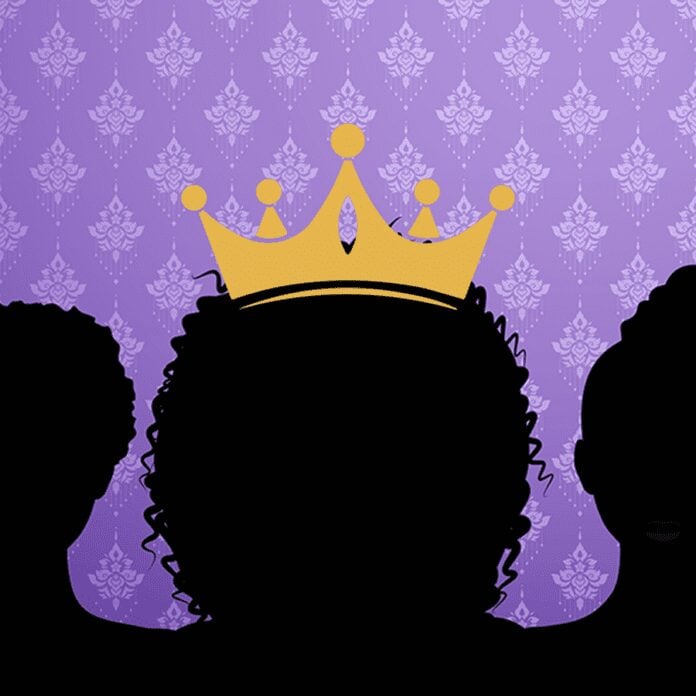
Legislation to prevent race-based hair discrimination — also known as the CROWN Act — was recently introduced in the state of Indiana. The bill did not pass, but what does that mean for Hoosiers of color?
Sponsored by The Crown Coalition, in partnership with DOVE, The National Urban League, The Color of Change and Western Center on Law and Poverty, The CROWN Act stands for “Creating a Respectful and Open World for Natural Hair.”
The legislation aims to end race-based hair discrimination and prevent employers and schools from disciplining students and employees for wearing natural or protective hairstyles, such as Afros, braids, locs, bantu knots or twists.
“In my opinion, I don’t know that there is a difference between the feelings and the trauma that’s experienced when they’re discriminated against for their hair versus their race or their skin complexion,” Jantina Anderson, a doctoral candidate at Indiana University, told the Recorder. “Because our hair is so closely aligned with who we are.”
Anderson’s interest in hair discrimination began in 2013, when she was looking for early childhood education schools for her children. She came across a charter school in Ohio with a dress code that prohibited protective hairstyles and said she could not understand how it was legal.
Anderson began her PhD program to learn more about discrimination laws, dress code policies and legislation preventing racial discrimination in schools and workplaces.
Unfortunately, during her studies, Anderson discovered such legislation did not yet exist in Indiana. However, she would eventually learn about the CROWN Act, which could provide the solution she had been searching for — if it passed.
READ MORE: I Made Rock ‘N’ Roll campaign highlights roots of genre
“It stands for nondiscrimination against African American women that wear their hair in a natural hair style,” State Rep. Vanessa Summers told the Recorder.
Summers, who was the first woman and African American state representative to become the Indiana House Democratic Caucus Chair, introduced the CROWN Act though House Bill 1284 during the 2023 Indiana legislative session.
The bill called for the prohibition of race-based hair discrimination as it relates to hair texture and protective styles. However, the Republican supermajority in the Indiana General Assembly essentially killed the bill by referring it to the House Committee on Education where it did not receive a hearing or a vote.
Although the CROWN Act did not pass during the 2023 legislative session, Summers said she will keep going and continue to “just keep chipping away at the rock.” Despite the current climate of the Indiana General Assembly, Summers said her chances of getting the CROWN Act passed are not yet zero.
“My eventual hope would be that people would understand and not discriminate,” Summers said. “We wouldn’t have to have these rules and there wouldn’t be a reason for you to send someone home because you don’t like the way their hair looks.”
Summers said it is important to educate people on the CROWN Act and race-based hair discrimination to end it. It is not enough that adults face it in the workplace, but children endure it in schools too, she said.
“You’ve seen it over and over again where they’ve been either asked to cut their hair or they’ve been put out of school because of a situation with their hair,” Summers said. “I think that in 2024, it’s time to get real about why we feel that it’s discrimination and why they feel that it isn’t discrimination and come to a happy medium. The best way to do that is to put legislation forth that brings it to the forefront.”
On March 8, The Marion County Bar Association held an event entitled “Happy 5th Birthday: Hair Discrimination Has No Age Limits.” During the event, Anderson spoke to guests about the CROWN Act, social and financial implications of hair discrimination as well as recent incidents where students have been barred from sports or classes for their hair.
Anderson cited a study by DOVE and LinkedIn which showed 66% of Black women change their hair for a job interview, 54% are more likely to straighten their hair for a job and 20% have been sent home from work because of their hair.
However, Anderson said it is not just a “white/Black issue.” There are long held beliefs within the community passed on from generation to generation around what’s acceptable or appropriate as far as their hair goes. Part of the solution is educating one another around the idea that textured hair can be professional and respectable in its natural state and protective styles, Anderson said.
“When I think about the incidents that occurred, and even just some of the anxiety that’s wrapped up with our hair, especially for young Black girls — like going swimming with your friends,” Anderson said. “Sometimes, those are hesitations and thoughts that are experienced even before anyone says anything just because of the societal standard around what our hair should look like.”
When a company says to a Black woman that the natural inherent texture of their hair is inappropriate and not professional, what they are really saying is they cannot show up as themselves, Tamara Winfrey-Harris, president of the Women’s Fund of Central Indiana, told the Recorder.
Education and economic stability have a profound impact on one’s ability to thrive, Winfrey-Harris said. When thinking about all of the other economic barriers that Black women face, their hair should not be yet another one.
“I think the very least that we need to look at doing is to stop creating rules and regulations that impact Black women and girls unfairly in the places they have to be,” Winfrey-Harris said. “That includes rules against our natural hair.”
The Women’s Fund of Central Indiana partners with Carolene Mays for the Executive Women of Color Leadership program, which helps women of color lead civic and community and career legacies, Winfrey-Harris said. The program also helps women of color network, allowing space to talk and problem solve around other barriers or experiences unique to them — such as having to navigate your appearance in order to show up in the workplace, Winfrey-Harris said.
“I know Hoosiers care about justice and they care about fairness, and we want everyone to thrive and have access to opportunity. Because we know when Black girls and Black women thrive, everybody thrives, our families thrive, our neighborhoods thrive, our larger communities thrive,” Winfrey-Harris said. “There should be no barriers to taking advantage of all the opportunities that exist in Central Indiana. And if people agree with that, then they should be in favor of the CROWN Act.”
For more information about the CROWN Act, visit thecrownact.com.
Contact Arts & Culture Reporter Chloe McGowan at 317-762-7848. Follow her on Twitter @chloe_mcgowanxx.
Chloe McGowan is the Arts & Culture Reporter for the Indianapolis Recorder Newspaper. Originally from Columbus, OH, Chloe graduated with a degree in journalism from The Ohio State University. She is a former IndyStar Pulliam Fellow, and her previous work includes freelancing for Indy Maven, Assistant Arts & Life Editor for The Lantern, and editorial assistant at CityScene Media Group. Chloe enjoys covering all things arts and culture — from local music, visual art, dance, theater and film, as well as minority-owned businesses. In her free time, Chloe enjoys reading, cooking and keeping her plants alive.




